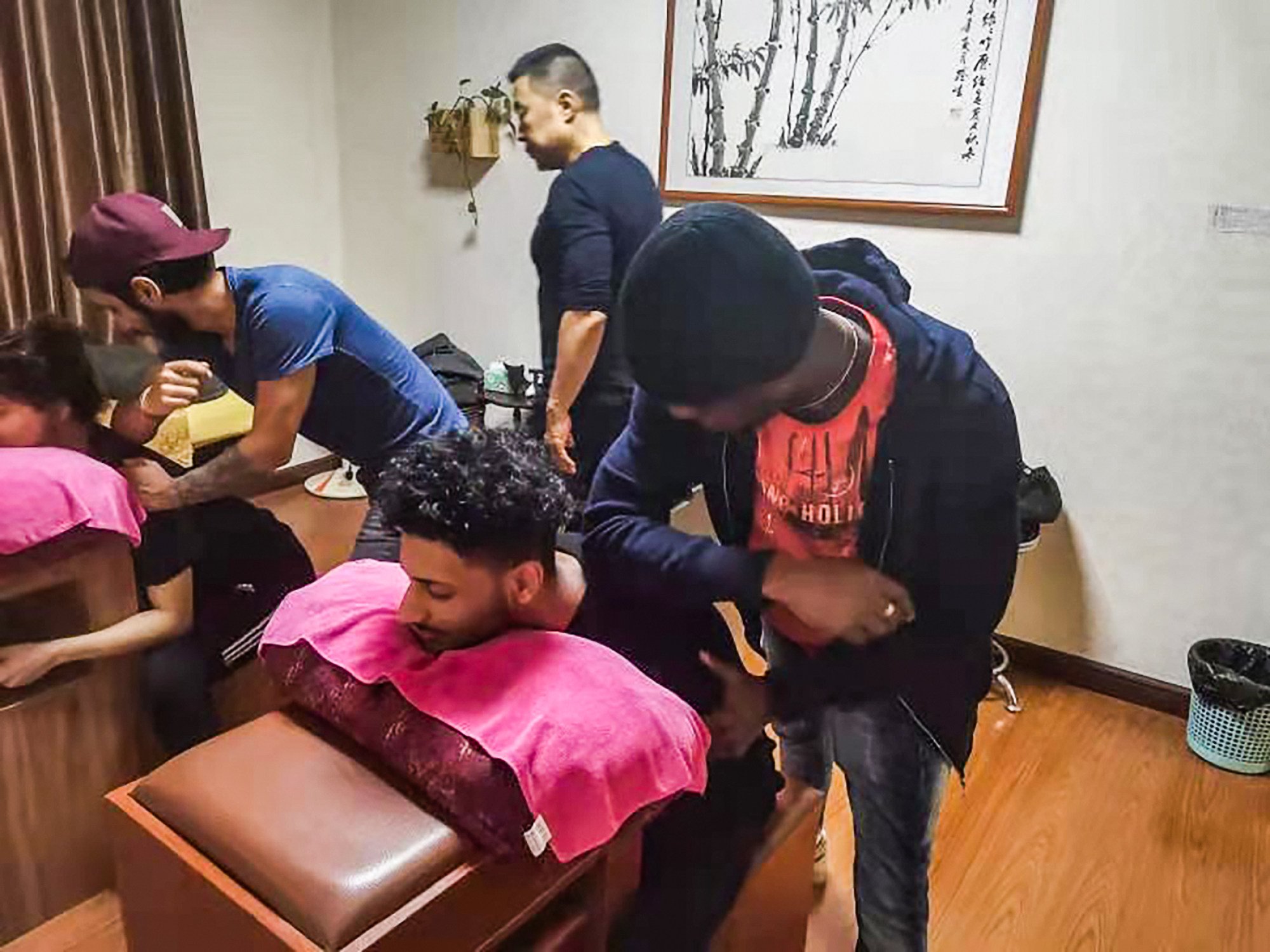
09:22
Nearly 50 years after his death, Bruce Lee’s martial arts and philosophy still influences lives
Foshan, Bruce Lee’s ancestral home, dusts off kung fu heritage as it seeks to kick start tourism, services sectors
- The city is building a ‘kung fu town’ near Bruce Lee’s ancestral home in Shunde district, as well as a research institute and an experience and outreach centre
- An important aspect of Foshan’s revitalisation plan will be the development of kung fu massage
The city of Foshan in China’s southern Guangdong province is looking to revitalise kung fu as part of plans to develop its tourism and services sectors.
The city, which has been home to wing chun grandmaster Ip Man and the family of superstar Bruce Lee, also Ip Man’s most famous disciple, is building a 4.98 sq km “kung fu town” near Lee’s ancestral home in Shunde district, as well as a research institute and an experience and outreach centre.
An important aspect of this revitalisation will be the development of kung fu massage. This type of massage originated from the medical skills of kung fu masters, who were often injured and had a lot of experience in healing and curing themselves and others.

“In the old days, you needed to learn kung fu for protection. But now … people care more about their health,” said Liang Xuyong, a fifth-generation disciple of the choy li fut style, as he explained the motivation behind the development of kung fu massage.
The kung fu revitalisation plan comes amid a push by Foshan, the third-largest economy in Guangdong, to upgrade and improve its industries. It is also expected to help kung fu proponents, who have struggled to adapt to a changing economic landscape, find a niche and make the martial arts more attractive to younger generations.
Liang is busy expanding his kung fu massage business. His company aims to open 60 centres in three years, especially since the coronavirus pandemic has increased awareness about health and wellness. He teaches massage techniques and choy li fut, and his current batch of students comes from as far away as Mexico.
“We can help our students start their own businesses,” he said, adding that they were operating four out of his six centres currently.
Foshan has more than 500 martial arts clubs that teach more than 50 variants. It was named “the City of Kung Fu” by the Chinese Wushu Association in 2004. The city invested 150 million yuan (US$22.9 million) on Bruce Lee Paradise, a 3,000 acre park that is also home to a 18.8 metre tall statue of the martial arts superstar. The park began operations in 2005.
Kung fu masters gathered in the city because of its well-established transport networks and robust economy. It was among the four most important commercial centres in China in the Ming and Qing dynasties together with Beijing, Suzhou and Wuhan in the northern, eastern and central regions, respectively, of the country.

Dong Chonghua, a disciple of Ip Chun, the elder son of wing chun grandmaster Ip Man, said he felt the glory days of kung fu were making a comeback. A fan of Bruce Lee, he learned wing chun in Foshan after migrating from Fujiang province. Thanks to the new possibilities presented by the city’s revitalisation plan, he will now have more time to practice and teach kung fu, instead of working in a factory by day and practising and teaching by night.
“The government is devoting more resources to developing kung fu” and there are more opportunities for people interested in the martial arts, he said. “I hope to carry on the legacy of traditional kung fu,” Dong added.

